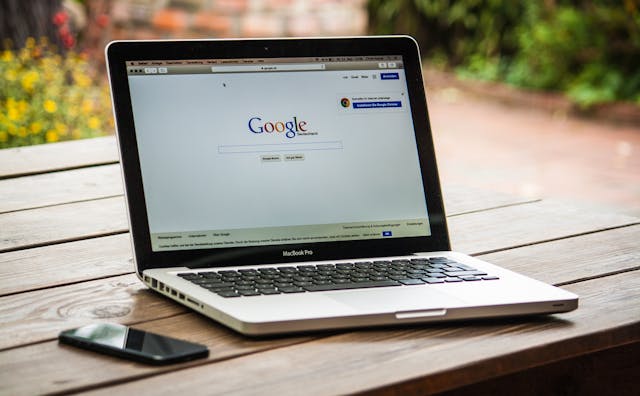Write Us: hello@ali5.org
AI vs Human Jobs: What Roles Are Actually Safe in the Next 10 Years?
Worried about AI replacing your job? Discover which careers are safe from automation in the next 10 years and what skills will future-proof your income.

Let’s be real, AI is everywhere right now. It’s writing emails, diagnosing diseases, driving cars, analyzing legal documents, and even generating music. And while some of this is genuinely amazing, it’s also making people nervous.
You’ve probably wondered: Will AI take over my job? Should I change jobs? In a world run by algorithms, what is still safe?
These are valid questions, and this article is here to unpack them, no fluff, no fear-mongering, just a clear-eyed look at where humans still win, where AI has the upper hand, and what roles will still matter in the next decade.
AI Isn’t Coming, It’s Already Here
Let’s start by being honest: AI has already changed the workforce.
-
Retail has self-checkout and automated inventory systems
-
Journalism uses AI to generate financial reports and sports recaps
-
Customer service is flooded with chatbots
-
Copywriters, designers, and coders are seeing AI tools pop up in their daily .work
So yeah, AI isn’t some future threat. It’s the present reality. But that doesn’t mean human jobs are obsolete. It just means the job landscape is evolving.
The key is understanding which roles are augmented by AI and which ones are being replaced.
Jobs That Are at High Risk of Automation
First, let’s get this part out of the way. These jobs are more vulnerable in the next 5–10 years:
-
Data entry and basic clerical work
-
Telemarketing and basic customer support
-
Cashiers and retail checkout clerks
-
Fast food prep and service roles
-
Basic financial analysts or compliance checkers
-
Routine manufacturing or assembly line work
What these roles have in common: they’re repetitive, rule-based, and don’t require high-level judgment or emotional intelligence. AI and robots can handle them faster and more cheaply.
So if you’re in one of these fields, it might be time to upskill or pivot, not out of panic, but out of preparation.
So, What Jobs Are Actually Safe?
Now let’s talk about the bright side. There are roles that AI just isn’t good at and won’t be anytime soon.
Here’s what’s safe (and in many cases, thriving):
1. Creative Roles That Require Original Thought
Yes, AI can generate content, but it’s not great at truly original ideas, emotional nuance, or cultural context.
-
Writers who bring personal voice, insight, and storytelling
-
Artists and designers who create based on human experience
-
Creative directors, editors, and strategists who guide vision, not just production
-
Video producers and podcast hosts who build an emotional connection
Think of AI as a helpful assistant in these fields, but not a replacement. Humans are still the ones setting the tone, making judgment calls, and creating art that moves people.
2. Healthcare Jobs Requiring Empathy and Judgment
AI is powerful in diagnostics and pattern recognition, but human healthcare workers aren’t going anywhere.
-
Doctors and surgeons (especially those interacting with patients)
-
Nurses, therapists, and mental health counselors
-
Caregivers, rehab specialists, and midwives
Healthcare is as much about trust and emotional support as it is about technical knowledge. You can’t replace bedside manner with code.
3. Skilled Trades and Hands-On Work
Not every job can be automated, especially not the physical ones that require adaptability.
-
Electricians, plumbers, and HVAC technicians
-
Mechanics, carpenters, and construction workers
-
Welders, elevator repair workers, and solar panel installers
These roles require physical skill, problem-solving in unpredictable environments, and real-world interaction, things robots can’t easily replicate. In fact, demand for skilled trades is rising while younger generations often overlook them.
4. Education and Training Professionals
Education isn’t just about delivering information; it’s about mentorship, motivation, and human connection.
-
Teachers, coaches, and tutors
-
Corporate trainers and learning designers
-
Educational consultants and career counselors
AI can offer tools, but it can’t replace the relational side of learning. Great educators adapt to students’ needs, read body language, and inspire, skills that don’t come from machines.
5. Human-Centered Tech Roles
Not all tech jobs are at risk; in fact, many are growing because of AI.
-
AI ethicists and AI trainers
-
Cybersecurity analysts
-
Product managers and UX designers
-
Data scientists (especially those working on interpreting and applying data, not just cleaning it)
-
AI prompt engineers and system architects
These roles blend human creativity with machine intelligence. They’re not about competing with AI; they’re about working with it.
6. Leadership and Strategy Roles
AI can analyze. It can optimize. But it can’t lead, at least, not in the human sense.
-
CEOs, managers, team leads, and entrepreneurs
-
Policy makers, consultants, and public speakers
-
Conflict mediators, negotiators, and diplomats
Leadership is deeply human. It involves vision, risk-taking, empathy, and ethical decision-making. These traits don’t come from algorithms.
Key Traits That Make Jobs “AI-Proof”
Forget job titles for a second. Let’s focus on qualities. Here’s what makes any role safer from AI disruption:
-
Emotional intelligence: The ability to read, relate, and respond to human emotion
-
Creativity and originality: Bringing new ideas to life, not just repeating patterns
-
Complex problem-solving: Especially in changing, unpredictable environments
-
Communication and persuasion: Building trust, making people care, explaining things well
-
Human touch: Roles where presence, empathy, and trust are central
If your job relies heavily on these traits, you’re in a good spot.
So… Should You Be Worried?
It’s normal to feel anxious. But here’s the truth: AI won’t kill all jobs. It will change how we work and what work looks like.
Here’s how to stay relevant:
-
Keep learning. Upskill, reskill, and stay curious.
-
Don’t fight AI, use it. Learn to work with tools that make you more efficient.
-
Focus on human strengths. AI will only highlight the value of skills it can’t replicate.
-
Be flexible. Your job title might change, but your core skills are transferable.
In The End, the future isn’t AI vs. humans; it’s AI and humans.
There will be big changes in the next ten years. But that doesn’t mean the end of the world for robots. It means changing the order of your priorities.
Jobs that don’t change will be the safest ones. They will be based on what makes us human: empathy, creativity, adaptability, and the ability to lead.
Instead of asking, “What jobs won’t exist?” ask, “What unique value can I bring to the table?”
And go from there.







